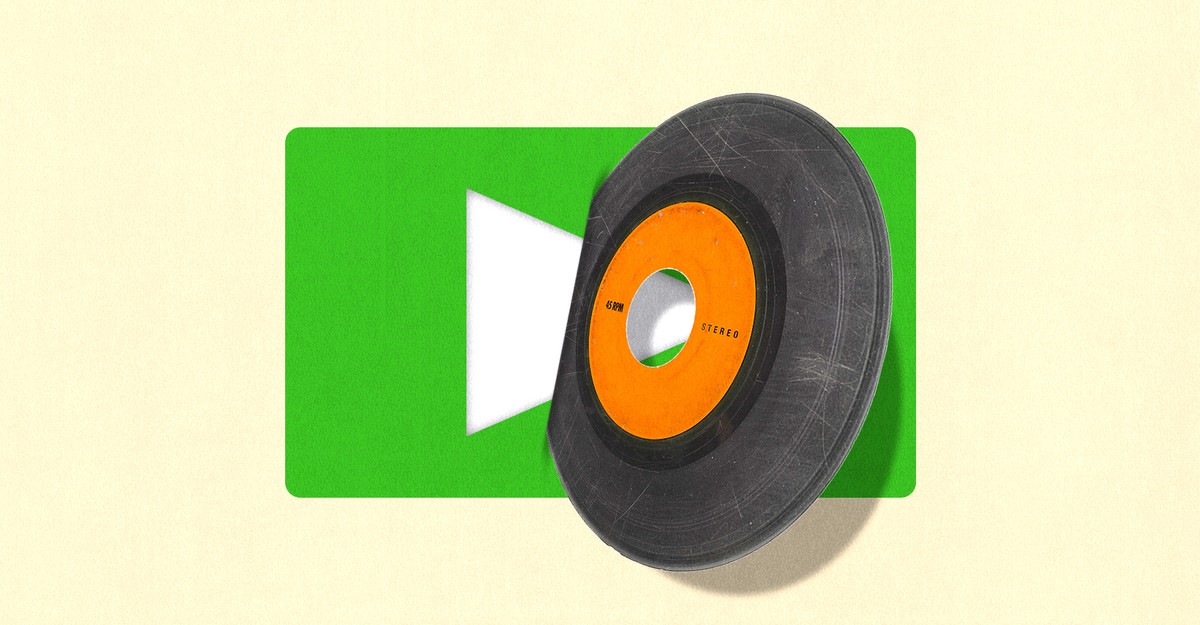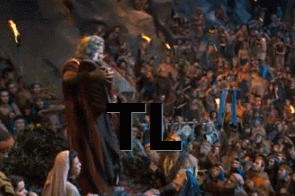- Sep 13, 2002
- 93,948
- 189,868
- 113
Fascinating article here:
IDEAS
By Ted Gioia
JANUARY 23, 2022, 7 AM ET
About the author: Ted Gioia writes the music and popular-culture newsletter The Honest Broker on Substack. He is also the author of 11 books, including, most recently, Music: A Subversive History.
Old songs now represent 70 percent of the U.S. music market, according to the latest numbers from MRC Data, a music-analytics firm. Those who make a living from new music—especially that endangered species known as the working musician—should look at these figures with fear and trembling. But the news gets worse: The new-music market is actually shrinking. All the growth in the market is coming from old songs.
The 200 most popular new tracks now regularly account for less than 5 percent of total streams. That rate was twice as high just three years ago. The mix of songs actually purchased by consumers is even more tilted toward older music. The current list of most-downloaded tracks on iTunes is filled with the names of bands from the previous century, such as Creedence Clearwater Revival and The Police.
I encountered this phenomenon myself recently at a retail store, where the youngster at the cash register was singing along with Sting on “Message in a Bottle” (a hit from 1979) as it blasted on the radio. A few days earlier, I had a similar experience at a local diner, where the entire staff was under 30 but every song was more than 40 years old. I asked my server: “Why are you playing this old music?” She looked at me in surprise before answering: “Oh, I like these songs.”
Never before in history have new tracks attained hit status while generating so little cultural impact. In fact, the audience seems to be embracing the hits of decades past instead. Success was always short-lived in the music business, but now even new songs that become bona fide hits can pass unnoticed by much of the population.
Only songs released in the past 18 months get classified as “new” in the MRC database, so people could conceivably be listening to a lot of two-year-old songs, rather than 60-year-old ones. But I doubt these old playlists consist of songs from the year before last. Even if they did, that fact would still represent a repudiation of the pop-culture industry, which is almost entirely focused on what’s happening right now.
Every week I hear from hundreds of publicists, record labels, band managers, and other professionals who want to hype the newest new thing. Their livelihoods depend on it. The entire business model of the music industry is built on promoting new songs. As a music writer, I’m expected to do the same, as are radio stations, retailers, DJs, nightclub owners, editors, playlist curators, and everyone else with skin in the game. Yet all the evidence indicates that few listeners are paying attention.
Consider the recent reaction when the Grammy Awards were postponed. Perhaps I should say the lack of reaction, because the cultural response was little more than a yawn. I follow thousands of music professionals on social media, and I didn’t encounter a single expression of annoyance or regret that the biggest annual event in new music had been put on hold. That’s ominous.
Can you imagine how angry fans would be if the Super Bowl or NBA Finals were delayed? People would riot in the streets. But the Grammy Awards go missing in action, and hardly anyone notices.
The declining TV audience for the Grammy show underscores this shift. In 2021, viewership for the ceremony collapsed 53 percent from the previous year—from 18.7 million to 8.8 million. It was the least-watched Grammy broadcast of all time. Even the core audience for new music couldn’t be bothered—about 98 percent of people ages 18 to 49 had something better to do than watch the biggest music celebration of the year.
A decade ago, 40 million people watched the Grammy Awards. That’s a meaningful audience, but now the devoted fans of this event are starting to resemble a tiny subculture. More people pay attention to streams of video games on Twitch (which now gets 30 million daily visitors) or the latest reality-TV show. In fact, musicians would probably do better getting placement in Fortnite than signing a record deal in 2022. At least they would have access to a growing demographic.
Some would like to believe that this trend is just a short-term blip, perhaps caused by the pandemic. When clubs open up again, and DJs start spinning new records at parties, the world will return to normal, or so we’re told. The hottest songs will again be the newest songs. I’m not so optimistic.
A series of unfortunate events are conspiring to marginalize new music. The pandemic is one of these ugly facts, but hardly the only contributor to the growing crisis.

 www.theatlantic.com
www.theatlantic.com
IDEAS
Is Old Music Killing New Music?
Old songs now represent 70 percent of the U.S. music market. Even worse: The new-music market is actually shrinking.By Ted Gioia
JANUARY 23, 2022, 7 AM ET
About the author: Ted Gioia writes the music and popular-culture newsletter The Honest Broker on Substack. He is also the author of 11 books, including, most recently, Music: A Subversive History.
Old songs now represent 70 percent of the U.S. music market, according to the latest numbers from MRC Data, a music-analytics firm. Those who make a living from new music—especially that endangered species known as the working musician—should look at these figures with fear and trembling. But the news gets worse: The new-music market is actually shrinking. All the growth in the market is coming from old songs.
The 200 most popular new tracks now regularly account for less than 5 percent of total streams. That rate was twice as high just three years ago. The mix of songs actually purchased by consumers is even more tilted toward older music. The current list of most-downloaded tracks on iTunes is filled with the names of bands from the previous century, such as Creedence Clearwater Revival and The Police.
I encountered this phenomenon myself recently at a retail store, where the youngster at the cash register was singing along with Sting on “Message in a Bottle” (a hit from 1979) as it blasted on the radio. A few days earlier, I had a similar experience at a local diner, where the entire staff was under 30 but every song was more than 40 years old. I asked my server: “Why are you playing this old music?” She looked at me in surprise before answering: “Oh, I like these songs.”
Never before in history have new tracks attained hit status while generating so little cultural impact. In fact, the audience seems to be embracing the hits of decades past instead. Success was always short-lived in the music business, but now even new songs that become bona fide hits can pass unnoticed by much of the population.
Only songs released in the past 18 months get classified as “new” in the MRC database, so people could conceivably be listening to a lot of two-year-old songs, rather than 60-year-old ones. But I doubt these old playlists consist of songs from the year before last. Even if they did, that fact would still represent a repudiation of the pop-culture industry, which is almost entirely focused on what’s happening right now.
Every week I hear from hundreds of publicists, record labels, band managers, and other professionals who want to hype the newest new thing. Their livelihoods depend on it. The entire business model of the music industry is built on promoting new songs. As a music writer, I’m expected to do the same, as are radio stations, retailers, DJs, nightclub owners, editors, playlist curators, and everyone else with skin in the game. Yet all the evidence indicates that few listeners are paying attention.
Consider the recent reaction when the Grammy Awards were postponed. Perhaps I should say the lack of reaction, because the cultural response was little more than a yawn. I follow thousands of music professionals on social media, and I didn’t encounter a single expression of annoyance or regret that the biggest annual event in new music had been put on hold. That’s ominous.
Can you imagine how angry fans would be if the Super Bowl or NBA Finals were delayed? People would riot in the streets. But the Grammy Awards go missing in action, and hardly anyone notices.
The declining TV audience for the Grammy show underscores this shift. In 2021, viewership for the ceremony collapsed 53 percent from the previous year—from 18.7 million to 8.8 million. It was the least-watched Grammy broadcast of all time. Even the core audience for new music couldn’t be bothered—about 98 percent of people ages 18 to 49 had something better to do than watch the biggest music celebration of the year.
A decade ago, 40 million people watched the Grammy Awards. That’s a meaningful audience, but now the devoted fans of this event are starting to resemble a tiny subculture. More people pay attention to streams of video games on Twitch (which now gets 30 million daily visitors) or the latest reality-TV show. In fact, musicians would probably do better getting placement in Fortnite than signing a record deal in 2022. At least they would have access to a growing demographic.
Some would like to believe that this trend is just a short-term blip, perhaps caused by the pandemic. When clubs open up again, and DJs start spinning new records at parties, the world will return to normal, or so we’re told. The hottest songs will again be the newest songs. I’m not so optimistic.
A series of unfortunate events are conspiring to marginalize new music. The pandemic is one of these ugly facts, but hardly the only contributor to the growing crisis.

Is Old Music Killing New Music?
Old songs now represent 70 percent of the U.S. music market. Even worse: The new-music market is actually shrinking.


